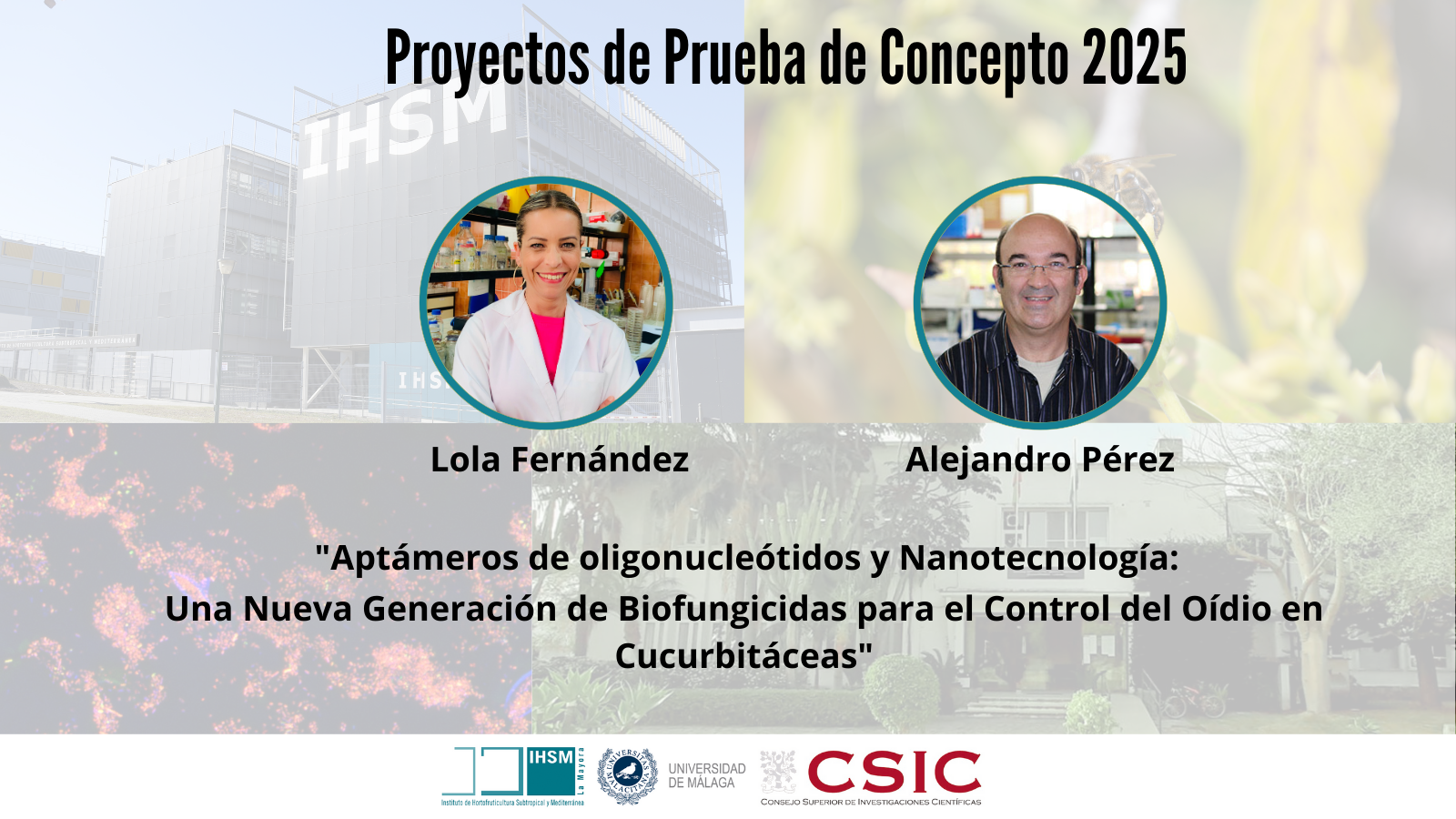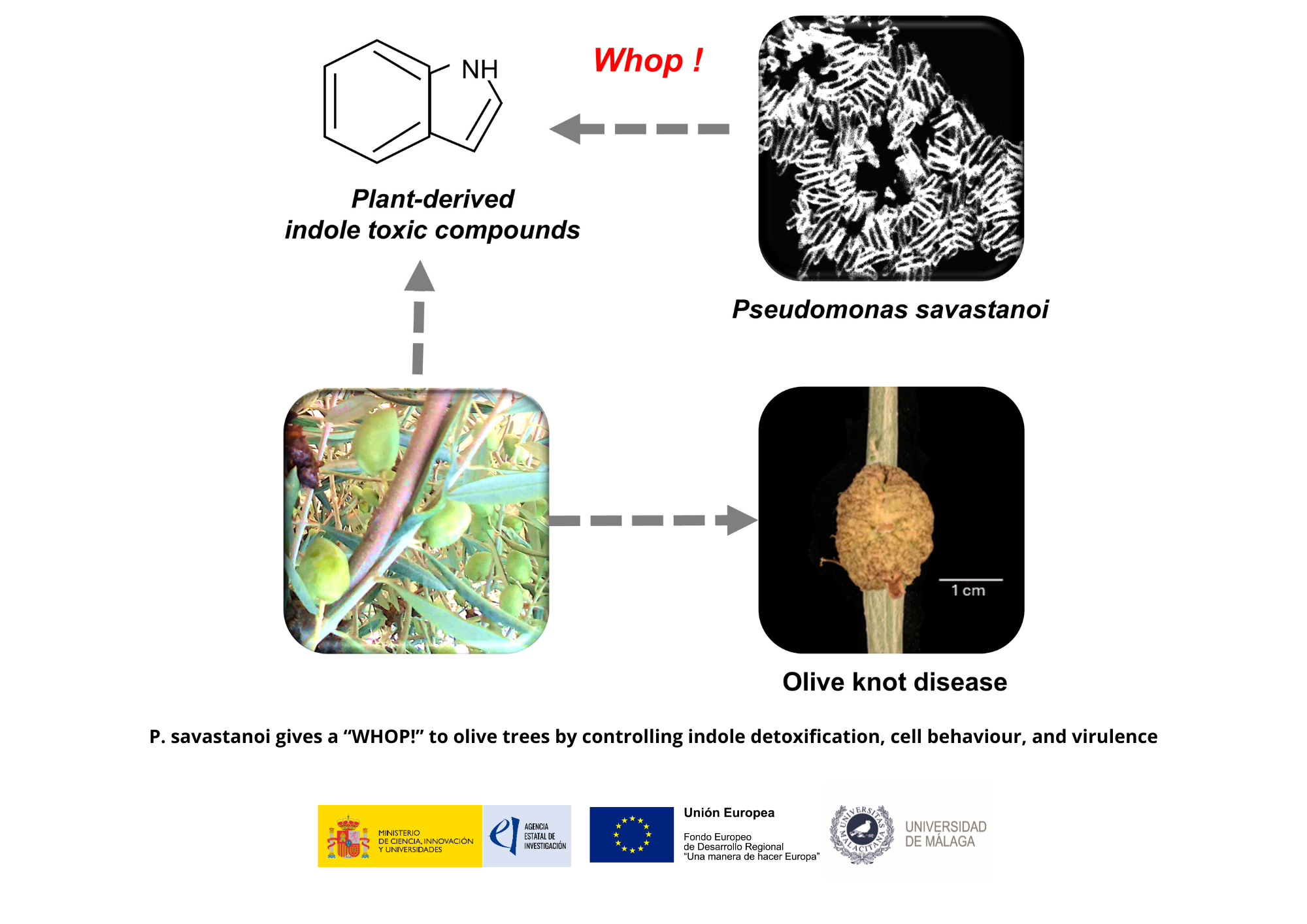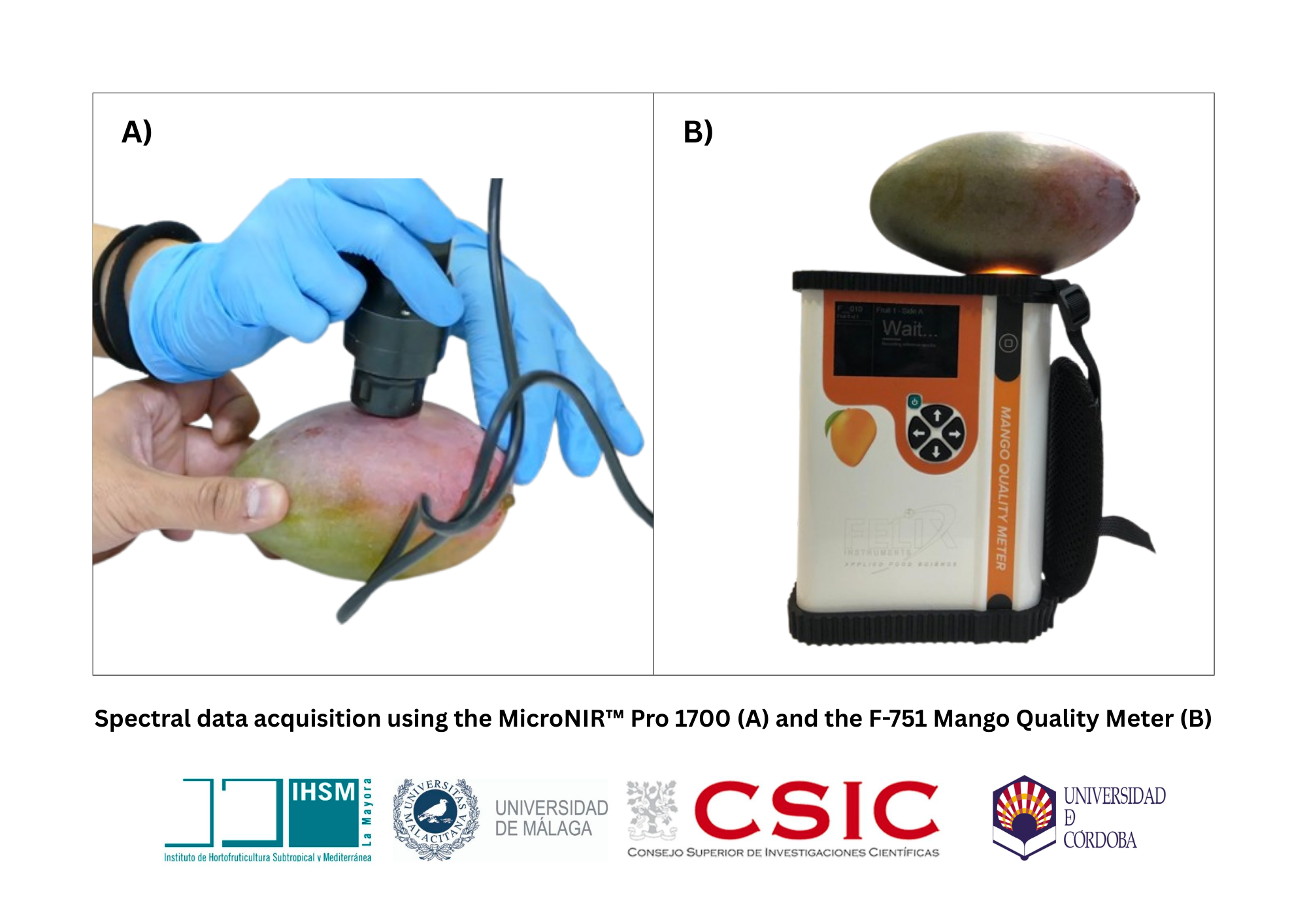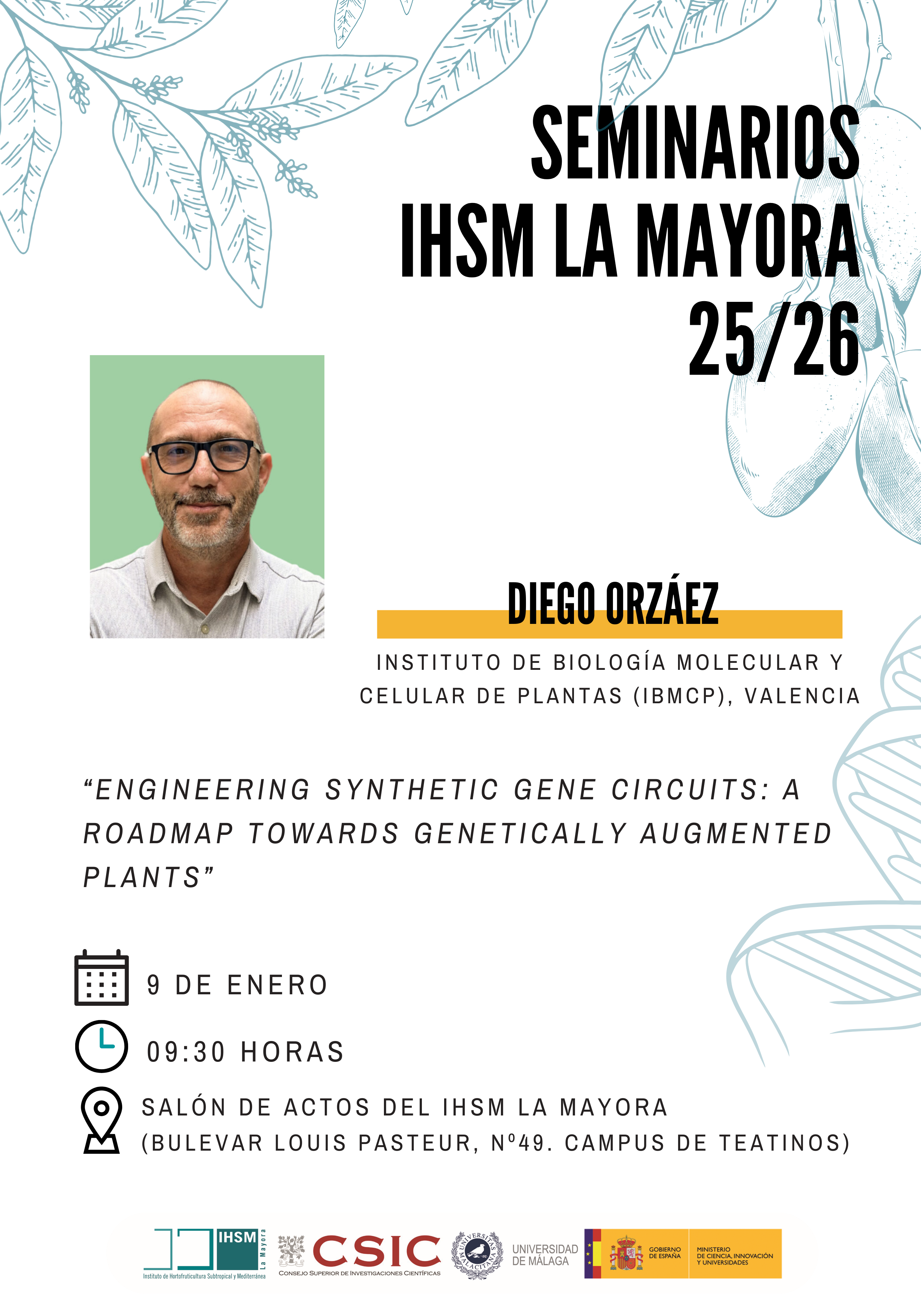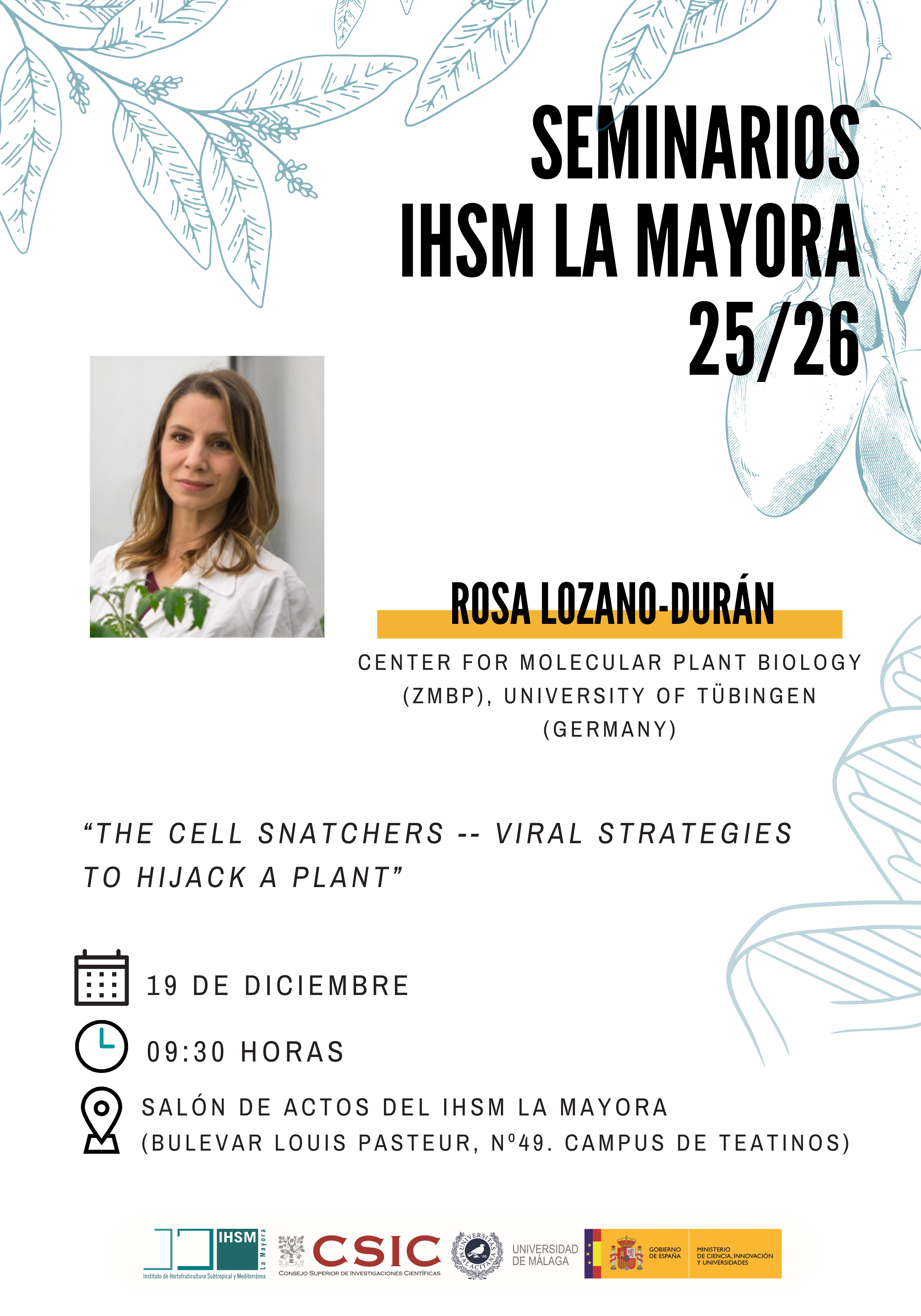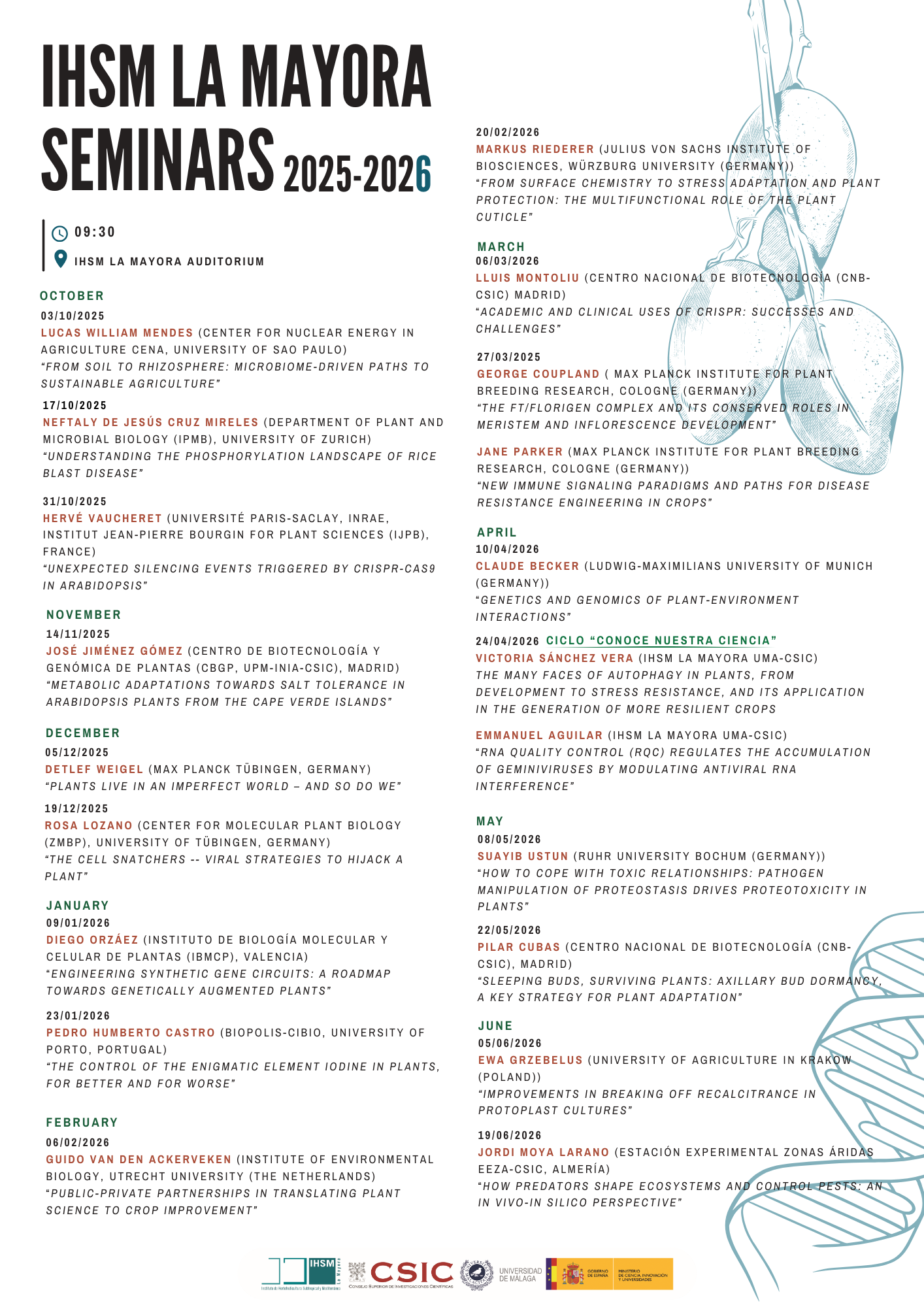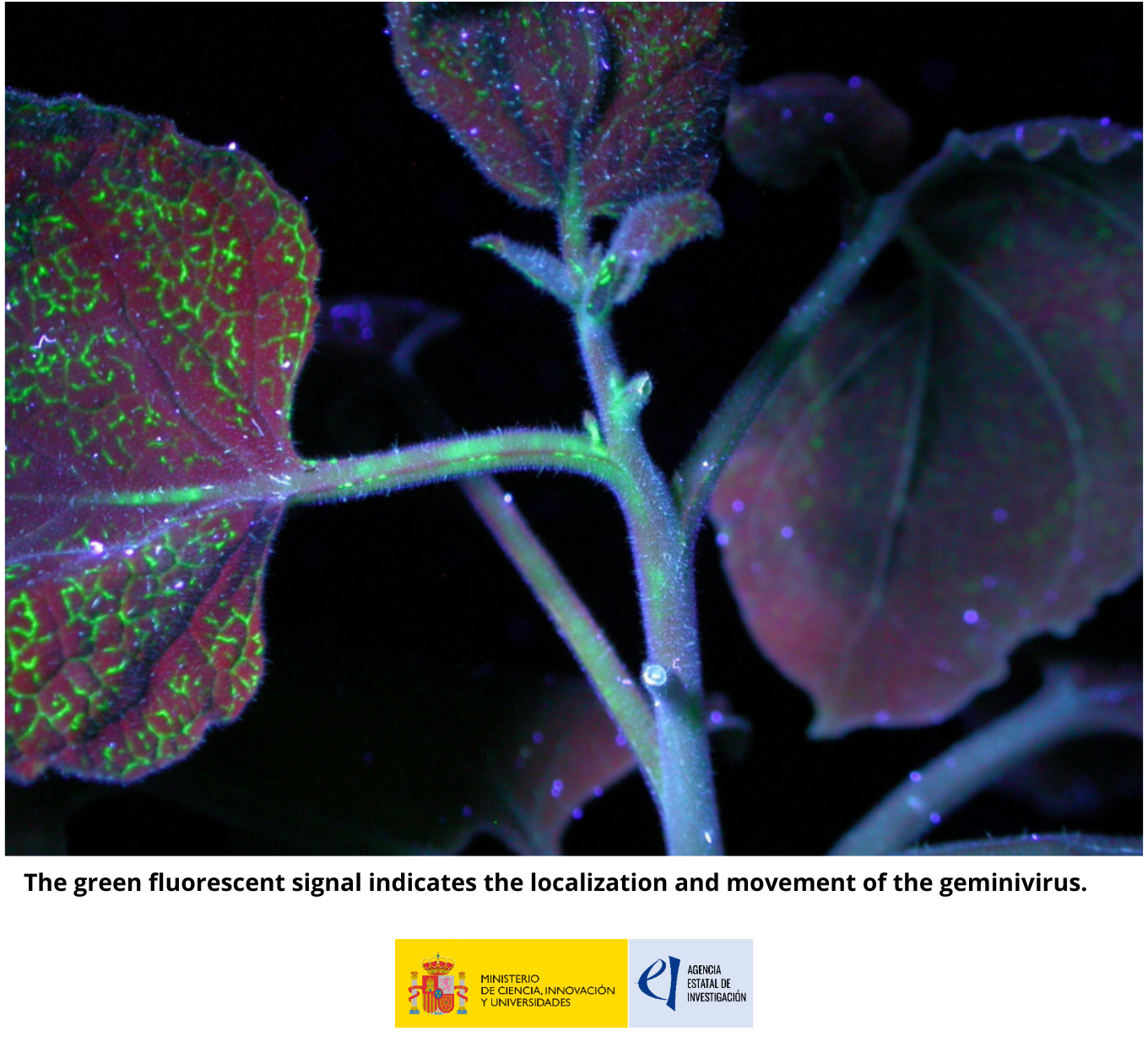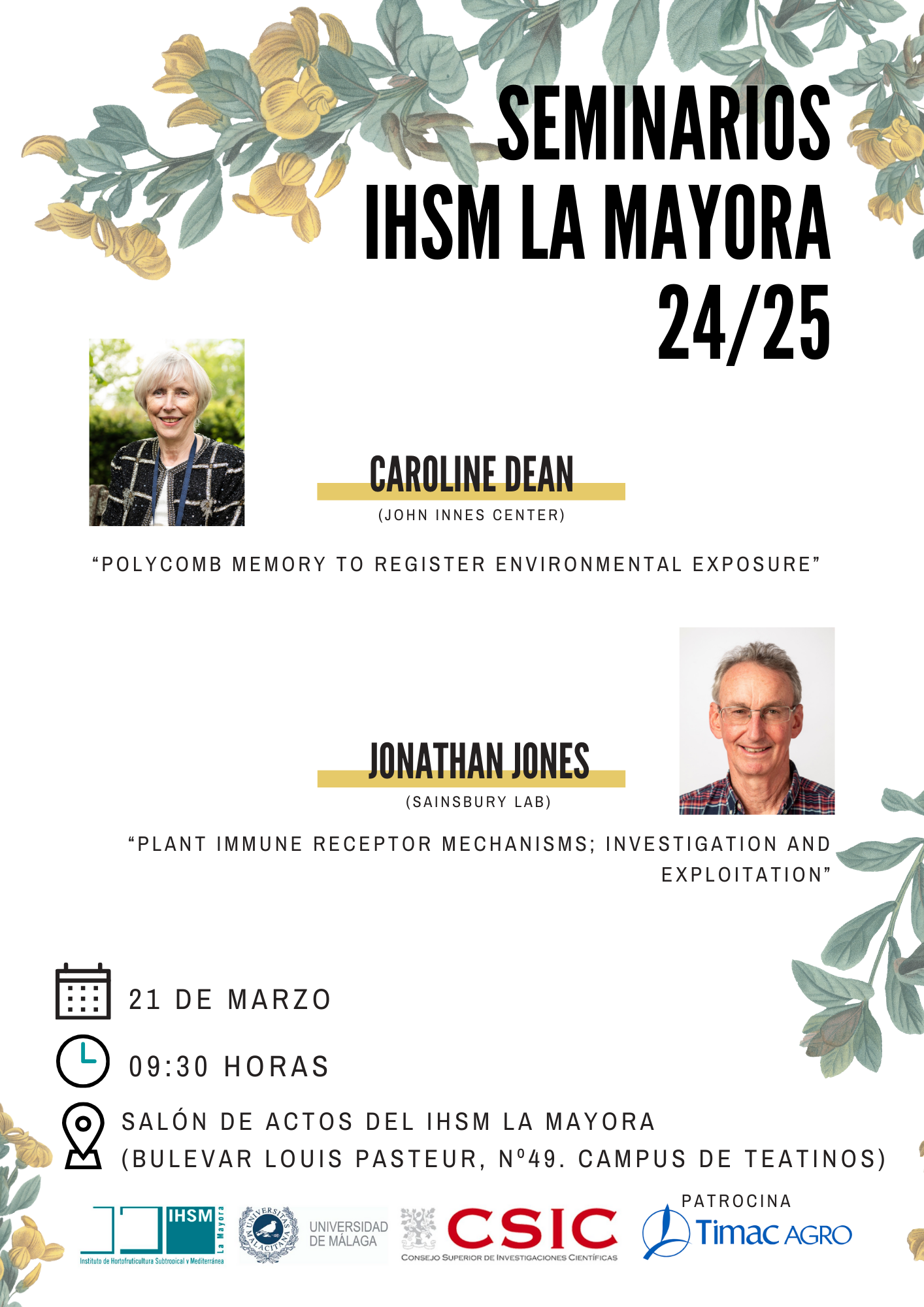
Seminarios IHSM La Mayora - Caroline Dean (John Innes Center) y Jonathan Jones (Sainsbury lab)
Caroline Dean John Innes Centre, Norwich Title: Polycomb memory to register environmental exposure Abstract Plants are completely tuned to their environment, timing their development in response to long-term seasonal trends. The Dean lab addresses how the environment affects plant genome functioning through the study of vernalization. Vernalization, the acceleration of flowering by winter cold, raises two generic questions important for many chronic environmental responses. First, how is the noisy temperature profile registered, and second, what holds the memory of prior exposure enabling plants to distinguish a day of cold from the whole of winter? In Arabidopsis, vernalization involves the epigenetic silencing of the floral repressor FLC. We have shown that FLC is silenced through parallel pathways that function with different dynamics: an antisense-mediated transcription repression pathway capable of fast response and a slow Polycomb silencing mechanism. Different aspects of the natural temperature fluctuations input at many steps in these pathways. Some function directly through co-transcriptional changes of FLC sense and antisense transcription, and others work indirectly through reduced cell division, but they are all integrated through promotion of the low probability Polycomb-mediated chromatin switch. This occurs locally at each allele and holds the memory of the temperature exposure through the rest of development. The talk will describe our understanding of this environmentally mediated epigenetic switching mechanism. Biography Professor Dame Caroline Dean obtained her PhD on chloroplast development in wheat in 1982 from the University of York. She spent 5 years at Advanced Genetic Sciences Inc, a start-up plant biotech company in California, determining how to get high level expression of chimeric genes in transgenic plants. She initiated her work on Arabidopsis as a project leader at the John Innes Centre in 1988 and coordinated the UK Arabidopsis network from 1990-1996. She is an EMBO Fellow, Fellow of the Royal Society, Leopoldina Member, and Foreign Member of the National Academy of Sciences. She has been awarded multiple awards, including FEBS-EMBO Woman in Science (2015), Darwin Medal (2016), L'Oréal-UNESCO European Laureate (2018), Wolf Prize in Agriculture (2020), Royal Medal (2020), Mendal Medal (2023), McClintock Prize (2024). Her current position is a Royal Society Research Professorship, which she holds at the John Innes Centre, and as an LMB Fellow at MRC, Laboratory of Molecular Biology in Cambridge. ________________________________________ JONATHAN JONES Sainsbury Lab, University of East Anglia, Norwich Research Park, Colney Lane, Norwich, NR4 7UH, UK Title: Understanding and exploiting plant immune receptor mechanisms Abstract Plants exhibit pronounced genetic variation at Resistance (R) gene loci that specify resistance to specific races of their pathogens, and R genes usually encode intracellular NLR immune receptors. Polymorphism in NLR repertoires is important for their efficacy. Plant populations are continuously selected for R gene variants that can detect microbial colonists; resisted pathogen populations are in turn selected for evasion of detection by a plant’s immune receptor repertoire. I will present recent mechanistic insights into how the WRR4A NLR is activated by oligomerization upon detection of multiple different effectors from the white rust pathogen of Arabidopsis. Some plant NLR proteins carry a TIR domain at their N-termini, that upon oligomerization, forms an enzyme that converts NAD+ and ATP into signaling molecules that activate a “helper” NLR required for defense activation. This helper NLR involvement in defense also requires activation by surface-receptor mediated defense signaling. I will discuss the role of phosphorylation in this process. Understanding immune receptor mechanisms is not only interesting but also potentially useful. I will describe how in the UK we can now use immune receptor stacks to elevate disease resistance in crops and bring these improved varieties to market. Biography Professor Jonathan Jones obtained his PhD working on cereal chromosomes and heterochromatin at the Plant Breeding Institute, Cambridge UK and then postdoc’d with Fred Ausubel at Harvard, working on symbiotic nitrogen fixation. He spent 5 years at Advanced Genetic Sciences Inc, a start-up plant biotech company in California, determining how to get high level expression of chimeric genes in transgenic plants, cloning and expressing antimicrobial genes and setting up assays for investigating maize transposon activity in dicots. In 1988, he moved to the Sainsbury Lab in Norwich where he initiated a program on isolating and characterizing disease resistance genes to understand immune mechanisms in plants. He is an EMBO Member, Fellow of the Royal Society and Foreign Member of the US National Academy of Sciences. He received the ISMPMI outstanding achievement award in July 2023. He cofounded or is Director of https://en.wikipedia.org/wiki/Mendel_Biotechnology, https://www.norfolkhealthyproduce.com/ and https://biopotatoes.tsl.ac.uk/ .

